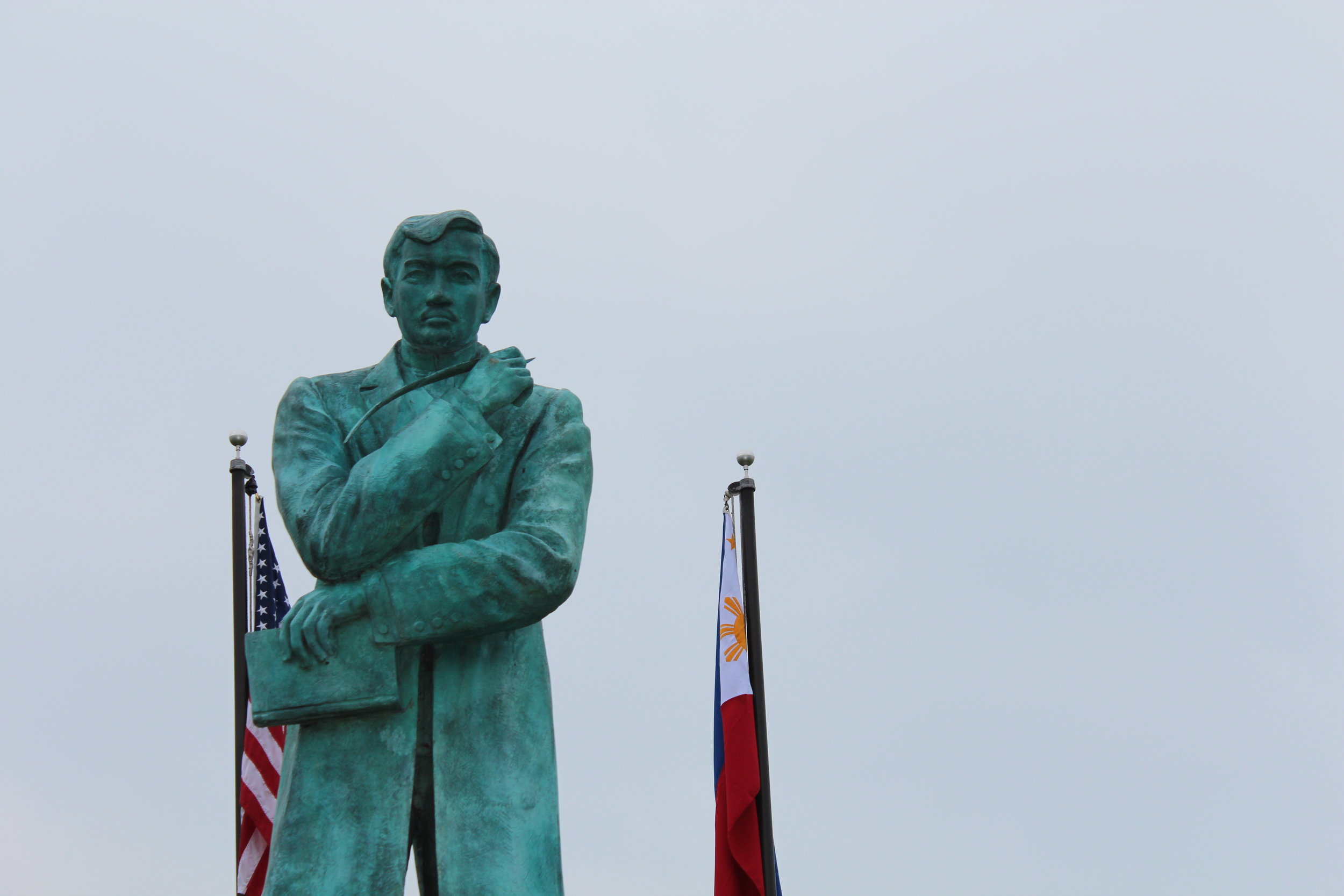Fourth of July: An Immigrant Celebration of Home
Ellis Island was not always the Golden Door. At other times, it was a predecessor to Guantanamo, where "suspected enemy aliens" were detained and deported, and where nativist sentiments manifested into the Chinese Exclusion Act, Quota Laws of 1921 and the National Origins Act of 1924, among others:
"The perception existed that the newly arriving immigrants mostly from southern and eastern Europe were somehow inferior to those who arrived earlier." [ibid]
Still, the American myth, encoded in Emma Lazarus' "The New Colossus" and cast in Auguste Bartholdi's Statue of Liberty, persists in the collective cultural imagination. Today, many millions of American stories begin, not at birth, but at the New Ellis Islands: airports, border crossings, courtrooms, city halls, churches and untold others.
Engraved in a plaque at the foot of the Statue of Liberty, "The New Colossus" by Lazarus articulates the American Dream.
Not like the brazen giant of Greek fame, With conquering limbs astride from land to land; Here at our sea-washed, sunset gates shall stand A mighty woman with a torch, whose flame Is the imprisoned lightning, and her name Mother of Exiles. From her beacon-hand Glows world-wide welcome; her mild eyes command The air-bridged harbor that twin cities frame. "Keep, ancient lands, your storied pomp!" cries she With silent lips. "Give me your tired, your poor, Your huddled masses yearning to breathe free, The wretched refuse of your teeming shore. Send these, the homeless, tempest-tost to me, I lift my lamp beside the golden door!" [emphasis mine]
This poem and this icon are inextricable, for me, with my best hopes for our nation: That we are not merely tolerant - but that we welcome home immigrants with an all-encompassing, unwavering love, like a mother towards her children, for all who hope for freedom, even for the least among us - the exiled, poor and oppressed.
And even as a nation of immigrants and immigrants' children continually refashions itself and tries to make a new country out of the pieces of many, I wonder:
What is "home"?
Is it the country (or culture) you're in or another? Is it both? Neither? What about for your children? Does a view of home become complicated as are the histories between the United States and the Philippines, for example? (See Mark Twain's critiques of the Spanish-American War of 1898, and note that today, July 4, is also the Philippine Republic Day or Filipino American Friendship Day.) Or is "home" something else entirely - a definition that is subjective, personal and changing? And if this last is true, what does that consist of?
This is a question I'll be approaching over the next few weeks during my visit to the Philippines, from where both my parents emigrated, on my series, "Uuwi: Going Home." Right here on this blog!
Starting this Sunday, I'll travel with the 2013 Ambassadors' Tour -- about 500 Filipino Americans and Filipino Canadians and their families, Filipino ambassadors, consul generals and directors of tourism from major cities across North America. I'm honored to be a media guest of the Philippines' Department of Tourism. I hope you'll follow along.
